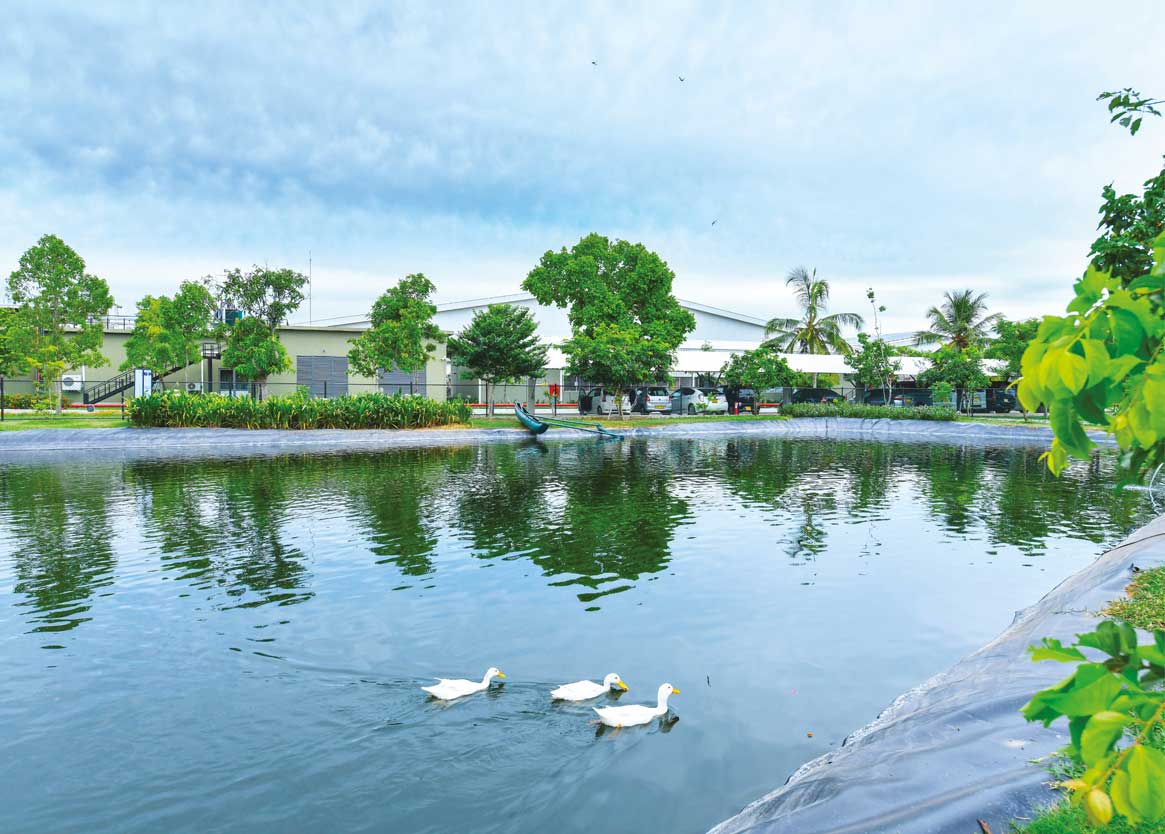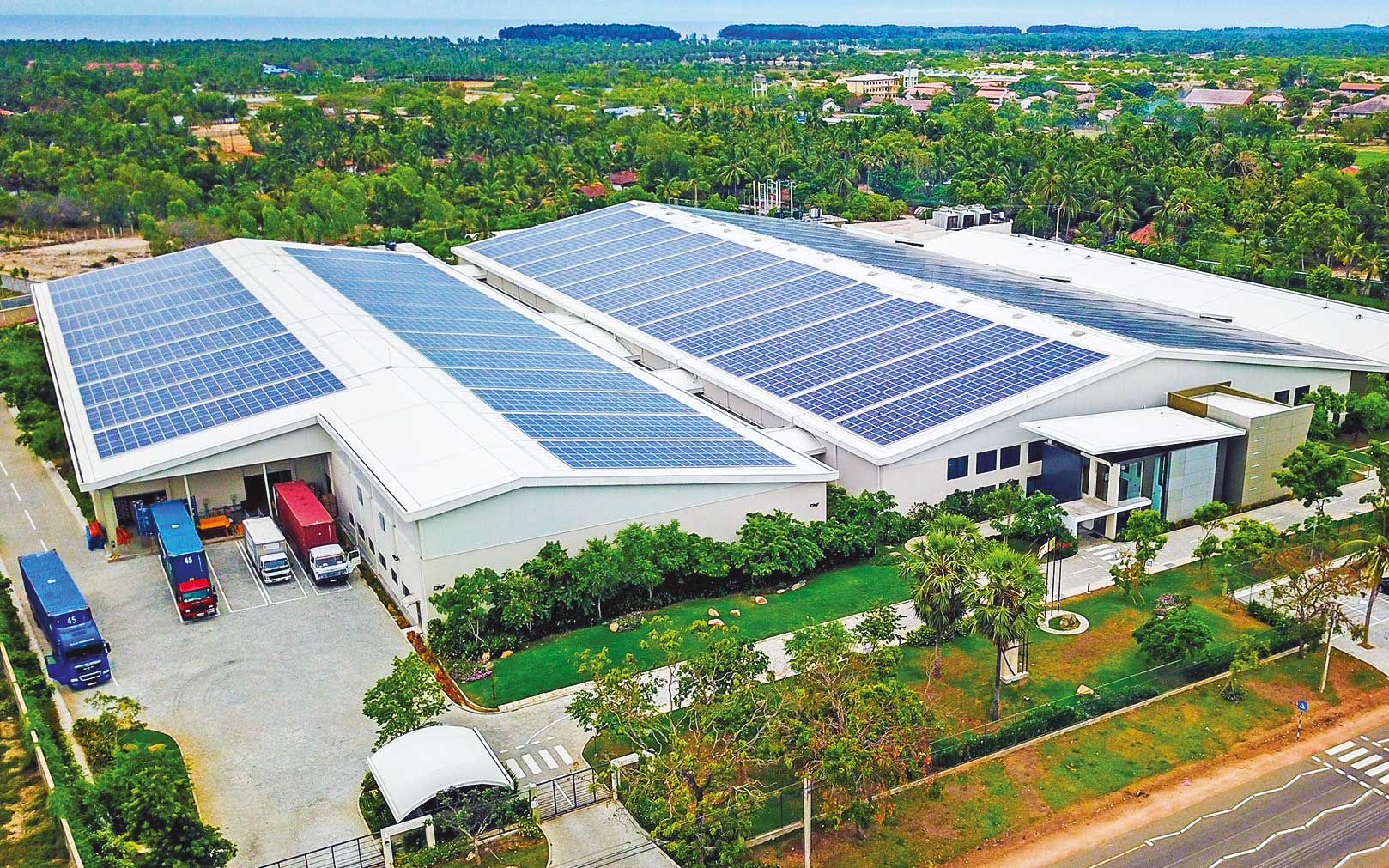CORPORATE PROFILES
BRANDIX
 Q: In your view, what is the apparel industry’s role in the effort to go ‘green’ and drive Sri Lanka towards this transition?
Q: In your view, what is the apparel industry’s role in the effort to go ‘green’ and drive Sri Lanka towards this transition?
A: The global apparel industry is responsible for a significant share of greenhouse gas emissions, the consumption of natural resources and waste generation.
The recent IPCC report confirms this, stating that the industrial sector could play a critical role in either mitigating or exacerbating the impact on the climate emergency. Therefore, going green is no longer an option but an obli-gation.
At Brandix, we recognised the importance of ensuring that our operations are energy and water efficient in 2007, and have since supported the transition towards renewable en-e-r—–gy and green building principles, minimising our waste footprint and supporting sustainable community development.
Q: What does the concept of corporate sustainability mean to an organisation?
A: Corporate sustainability now integrates ESG (environmental, social and governance), accounting for an organisation’s impact on the environment and communities.
By measuring metrics such as climate change, pollution, human rights and safe working conditions, organisations with ESG embedded in their business strategies create value for all stakeholders and the planet. It represents an opportunity for the corporate sector to be future ready with a distinctive competitive edge.
Since the onset of Brandix’s sustainability journey in 2007, we’ve believed in leading the way by delivering inspired solutions through our sustainability and CSR agendas.
Q: Are sustainability related indicators considered as being performance measures? And if so, how?
A: Responsibly managing an organisation’s impact on the economy, environment and community translates into reduced costs, as well as improved risk management and stakeholder relations.
For example, improvements in energy and water efficiency reduce utility costs, com-pliant waste management minimises the risk of legal interventions and greater social cre-dibi-lity leads to talent attraction.
This indicates that improving sustainability performance results in positive business performance. Metrics such as net zero emissions, water wastage and supporting community development are already deeply rooted in our strategy, and continue to result in long-term benefits for the business.
 Q: Is the shift to more green solutions impac-ting organisations operating in the apparel industry, in your assessment?
Q: Is the shift to more green solutions impac-ting organisations operating in the apparel industry, in your assessment?
A: Yes, the fashion industry is known as the world’s second highest polluting segment.
We’ve observed a noticeable shift in consu-mer perceptions with conversations on resource intensive operations, waste footprints, material sourcing and the use of hazardous chemicals already driving change.
Retailers and apparel manufacturers are re-cognising the importance of mitigating the impact of their operations, with progress made through initiatives such as Zero Discharge of Hazardous Chemicals (ZDHC) and Better Cotton Initiative (BCI) while also supporting stakeholders across the value chain to drive more tangible impacts.
It’s important to acknowledge the progress made so far but there is more to be done to miti-gate the impact of the climate crisis.
Q: What are the global benchmarks when it comes to sustainable initiatives?
A: It’s imperative to stay ahead of new benchmarks and developments.
Green building principles are evolving from Leadership in Energy and Environmental Design (LEED) certified buildings, towards incorporating net zero carbon, water and waste aspects. Likewise, the social licence to operate and B Corporation certification are evolving benchmarks as organisations align with the UN’s Sustainable Development Goals (SDGs).
Material sourcing, traceability, and sustainable product certifications through BCI and the Global Recycle Standard among others are gaining more traction as visibility along the va-lue chain increases for greater impact.
 Q: And what are the latest trends where CSR and sustainability are concerned?
Q: And what are the latest trends where CSR and sustainability are concerned?
A: Material circularity, net zero emissions and climate resilient supply chains are strategies that are beginning to take shape with corporate digital responsibility playing a critical role in the ‘new normal,’ as well as supporting a more inclusive approach to meeting the SDGs.
While some of these concepts are yet to be embraced, it’s essential to be future ready, gi-ven that these have already been embedded in sustainable financing frameworks within the banking and international development sectors.
As an organisation, Brandix will continue to push boundaries to lead the way in leaving a lasting positive impact for the future.
Naadia Buhary
Assistant Manager
Sustainability
Telephone 4727222 | Email info@brandix.com | Website www.brandix.com



